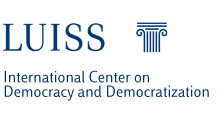Rule of law and digital citizenship
This section is framed into the broader perspective of the analysis of rule of law transformations across domestic and supranational systems of governance and in the interplay between law, technology, and politics. Over the last decade legal and justice institutions underwent a deep and comprehensive process of change. This has been catalyzed by 1) the change of the scope of regulative devices in key sectors of the social and economic life; 2) the unbalance between the branches of the State; the growth of the number of social and economic interaction that take place across domestic borders; 4) the decoupling between legal boundaries and functional boundaries, which creates more space for interdependent effects, overlaps, and normative complexity.
Moreover, the digital transformation impinges upon the quality of life of citizens at all levels, in their different ages of life, in the different fields of human, social, and economic development. Across the digital world, they may be going to deploy their talents, in the different channels through which they may be acting to ask for rights enforcement, information access, and participation opportunities. More than ever, today all the competences and the skills that have been pivotal in ensuring the cohesion, the reliability, the impartiality, and the durability of the governance institutions are put under deep and comprehensive pressure by the recurrent waves of technological innovations. These latter are instantiated by the existence of decision making enablers (such as algorithms applied to public decision making processes), by the hybridization of the interfaces between citizens and institutions (such as front offices active on and off line), partly being still organized in traditional manners and partly being digitalized and dematerialized. Human mobility is combined to the uneven distribution of organizational capacities in the different regions in the world, under conditions of fast growth, technological diffusion and expanding opportunities for citizens to get information, compare social contexts, express their voices, opinions, and desires. The ensemble of these factors create a potentially disruptive set of conditions undermining both equality and freedoms for citizens, social groups, economic actors.
The section undertakes three types of actions:
a) Research;
b) Evidence based policy dialogue;
c) Training needs assessment in the institutions – both private and public – that are involved into the processes of rule-making, rule implementation, and rule internalization;
Team of Junior Researcher
Federico Alagna
Una Kubota
Alessandro Nato
Gaia Taffoni
Luca Verzelloni


